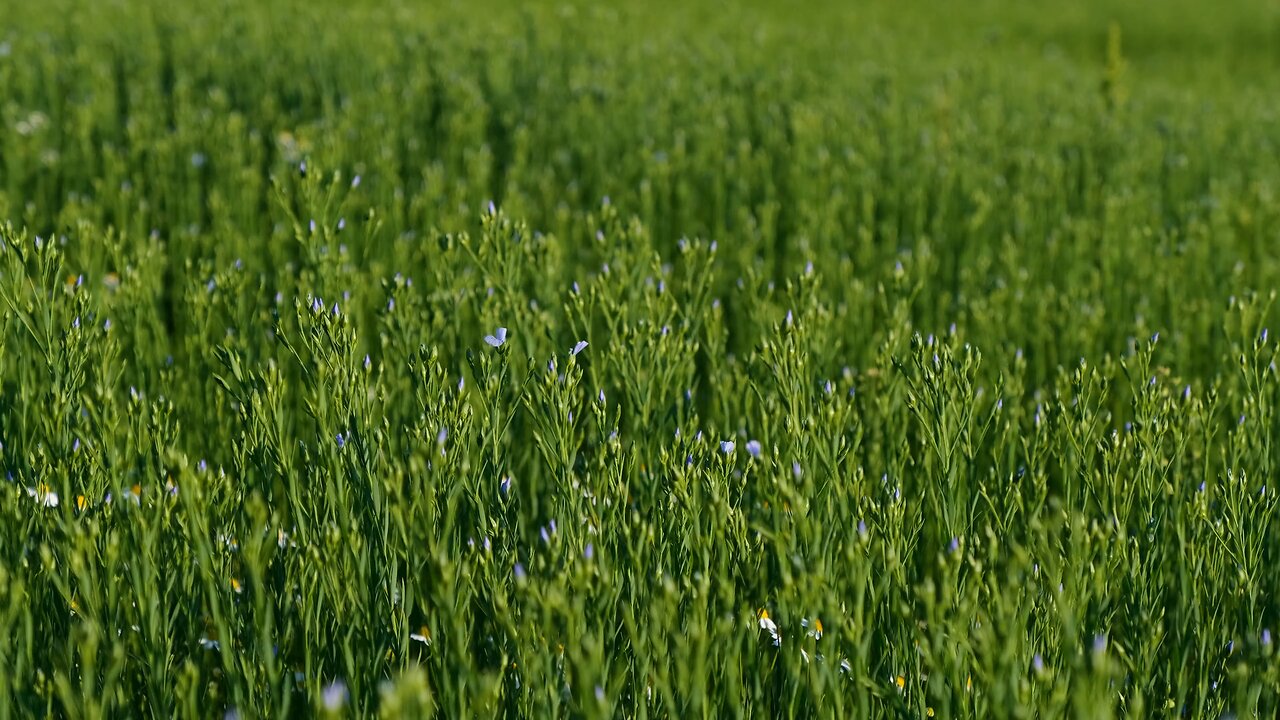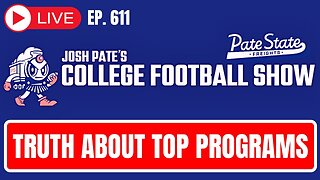Premium Only Content

"Flax: A Nutritional Powerhouse & Sustainable Resource"
Flax and its historical significance. Mention its use by ancient civilizations for food, medicine, and textiles.Flax SeedsNutritional Value: Highlight the high content of omega-3 fatty acids, fiber, and lignans.Health Benefits: Discuss benefits such as improved digestion, heart health, and potential anti-cancer properties.Usage: Show how to incorporate flax seeds into daily meals (e.g., smoothies, baking, salads).Flax OilExtraction Process: Explain how flax oil is made from seeds.Benefits: Talk about its benefits for skin, hair, and overall health.Usage Tips: Give advice on how to use flax oil and its culinary applications.Flax FiberProduction: Describe the process of turning flax plants into fibers for textiles.Sustainability: Emphasize the eco-friendly aspects of flax as a renewable resource.Products: Show examples of flax-based products, like linen fabrics and eco-friendly clothing.Growing FlaxCultivation: Briefly cover how flax is grown, including climate and soil requirements.Harvesting: Discuss the harvesting process and how it's prepared for different uses.ConclusionSummarize the versatility and benefits of flax.Encourage viewers to consider incorporating flax into their diets and lifestyles for its health and environmental benefits.
-
 1:56:25
1:56:25
Nerdrotic
3 hours ago $3.47 earnedThe Red Pyramid's Hidden Secrets | Forbidden Frontier #091
18.7K10 -
 2:08:53
2:08:53
vivafrei
12 hours agoEp. 252: Liberals DISQUALIFY Candidate from Race! DOGE Wins & Loses; Rumble Sues BRAZIL! & MORE!
87.9K119 -
 DVR
DVR
Josh Pate's College Football Show
2 hours ago $0.32 earnedCFB’s Top 12 Programs | TV Executives & Our Sport | USC Changes Coming | Early Championship Picks
2.92K -
 LIVE
LIVE
Vigilant News Network
7 hours agoUK Government BUSTED in Secret Plot to Extract Your Data | Media Blackout
1,383 watching -
 1:03:32
1:03:32
Winston Marshall
3 days ago"War On Children!" The DEMISE Of The West Starts With Schools - Katharine Birbalsingh
73.6K61 -
 48:02
48:02
Survive History
9 hours ago $1.67 earnedCould You Survive as a Sharpshooter in the Napoleonic Wars?
21.1K2 -
 12:03
12:03
Space Ice
10 hours agoSteven Seagal's China Salesman - Mike Tyson Knocks Him Out - Worst Movie Ever
13.4K14 -
 11:37
11:37
Degenerate Jay
10 hours ago $1.60 earnedJames Bond Needs Quality Over Quantity From Amazon
12.5K2 -
 15:23
15:23
Misha Petrov
10 hours agoTrad Wives & Girl Bosses Go to WAR!
14K33 -
 2:03:11
2:03:11
TheDozenPodcast
8 hours agoFootball villain fighting the state: Joey Barton
15.4K1